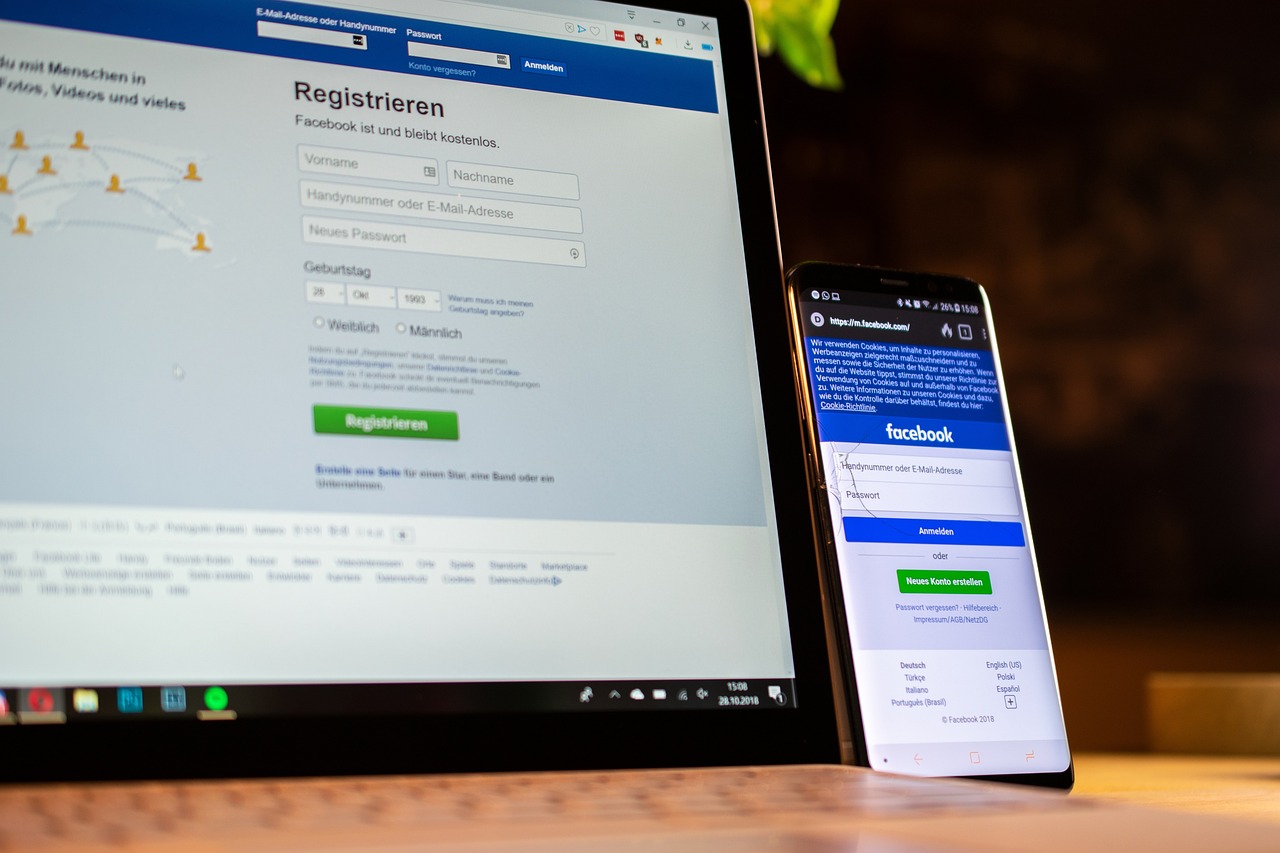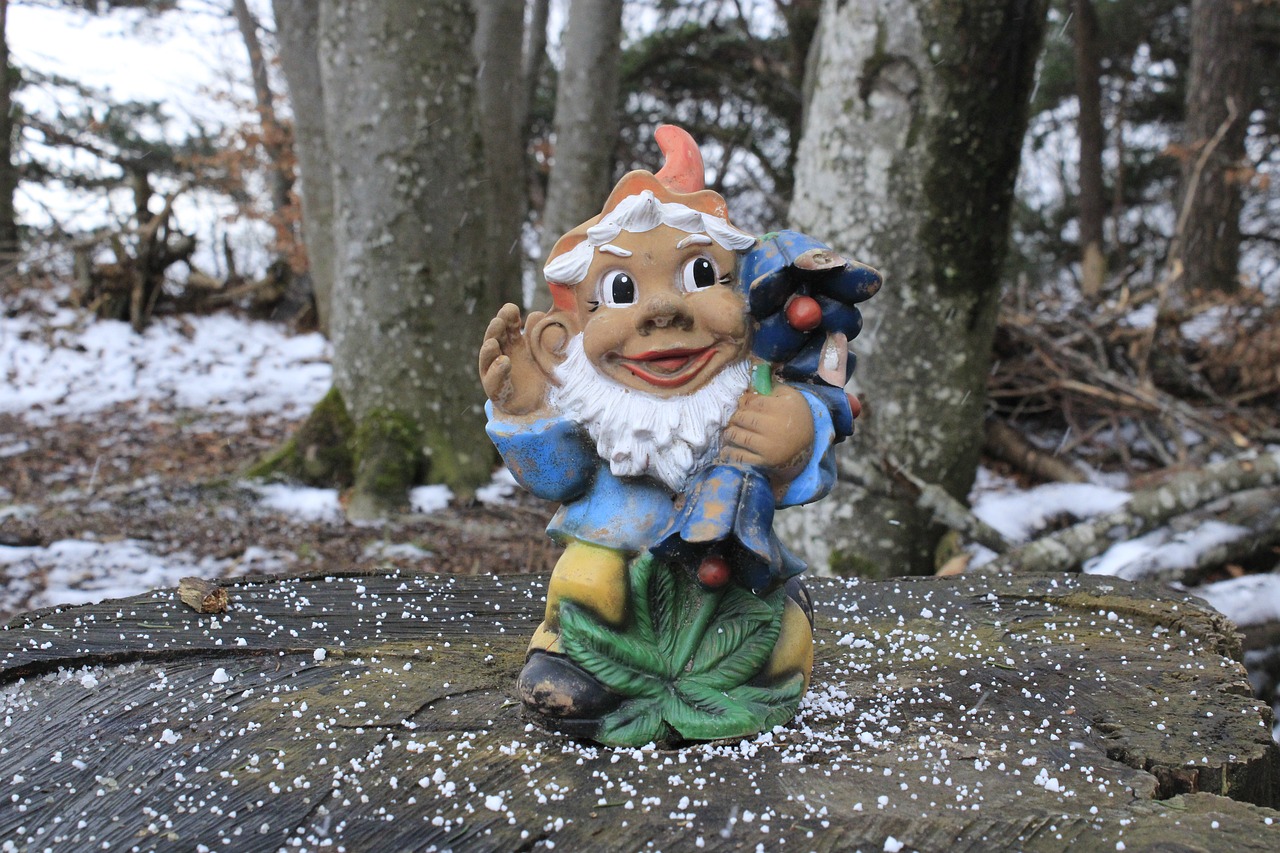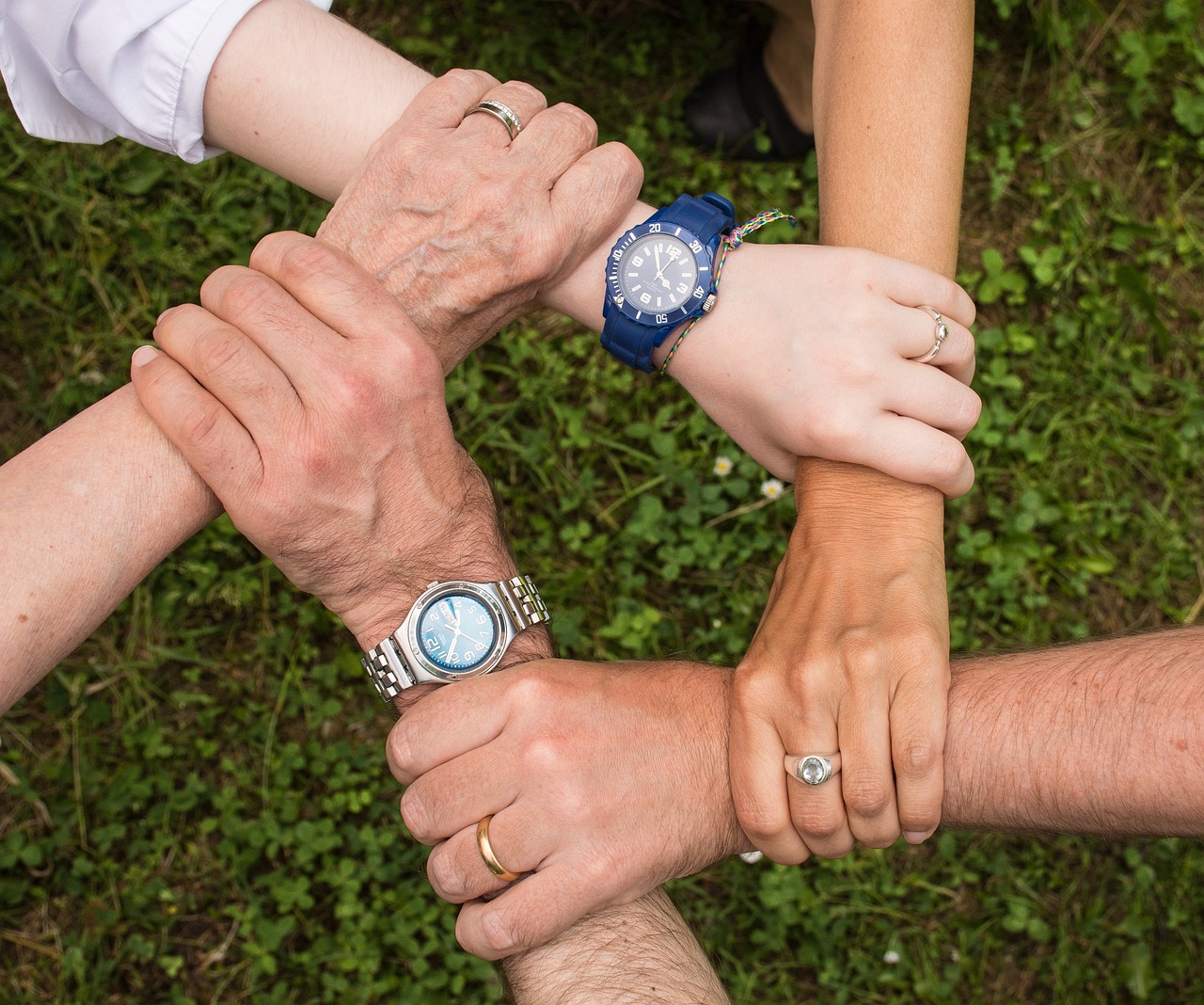Nurturing Resilience to Deal with Social Media Trolls
In today's digital age, social media has become a double-edged sword. While it allows us to connect with friends, share our thoughts, and discover new ideas, it also opens the door to negative interactions, particularly from social media trolls. These individuals thrive on provoking reactions and spreading negativity, often leaving their victims feeling vulnerable and isolated. However, nurturing resilience is not just a buzzword; it's a necessity for anyone navigating the often tumultuous waters of online interactions. By developing emotional strength and employing practical strategies, we can transform our online experiences from toxic to empowering.
Resilience is like a muscle; the more we exercise it, the stronger it becomes. Just as we wouldn't skip leg day at the gym, we shouldn't ignore our emotional well-being when faced with trolling. One of the most effective ways to build this resilience is through emotional management. This involves recognizing our feelings and understanding that it's okay to feel hurt or upset when confronted with negativity. Acknowledging these emotions is the first step toward overcoming them. Imagine trying to climb a mountain; you wouldn't just ignore the steep paths and rocky terrain. Instead, you'd prepare, equip yourself with the right tools, and most importantly, maintain a positive mindset.
Another crucial aspect of nurturing resilience is the role of supportive communities. Surrounding ourselves with positive influences can significantly buffer against the effects of trolling. Think of it as having a safety net; when you fall, you want something soft to catch you. Engaging with like-minded individuals who understand your struggles can provide the encouragement needed to rise above the negativity. Online forums, social media groups, or even just a close circle of friends can serve as your support system. These communities can help remind you that you are not alone in your fight against trolls.
Furthermore, practical coping techniques can be incredibly beneficial. Techniques such as mindfulness and positive self-talk can help you regain control over your emotional responses. When faced with a troll's comment, instead of reacting impulsively, take a moment to breathe and reflect. Ask yourself, "Is this comment a reflection of me or of them?" This simple shift in perspective can help you detach from the negativity and respond from a place of strength rather than vulnerability.
To sum it up, nurturing resilience against social media trolls is about building emotional strength, seeking supportive communities, and employing practical coping strategies. By focusing on these areas, we can foster a healthier online experience and transform the way we interact with the digital world. Remember, trolls may thrive on chaos, but we have the power to cultivate peace within ourselves.
- What are social media trolls? Social media trolls are individuals who post inflammatory, extraneous, or off-topic comments online to provoke reactions or disrupt conversations.
- How can I recognize troll behavior? Common signs of troll behavior include personal attacks, spreading misinformation, and making inflammatory comments that are designed to elicit strong emotional responses.
- What should I do if I encounter a troll? It's important to remain calm, avoid engaging with the troll, and consider blocking or reporting them to maintain a healthier online environment.
- Can supportive communities really help? Yes! Engaging with supportive communities can provide encouragement and validation, making it easier to cope with negative interactions online.
- What are some effective coping strategies? Techniques such as mindfulness, positive self-talk, and emotional regulation can help you manage your responses to trolling and enhance your resilience.

Understanding Social Media Trolls
In the vast expanse of the internet, social media has become a double-edged sword. While it connects us with friends and family, it also opens the door to a darker side—social media trolls. But who exactly are these trolls? Simply put, they are individuals who engage in disruptive, antagonistic, or inflammatory behavior online, often targeting others to provoke a reaction. Their motivations can vary widely, from seeking attention to simply enjoying the chaos they create. Understanding these motivations is crucial because it helps us to not take their actions personally, allowing us to navigate the digital landscape with greater ease.
The impact of trolls can be profound. They can unleash a barrage of negativity that affects not only the targeted individual but also the overall atmosphere of online communities. The psychological effects of such harassment can lead to feelings of anxiety, depression, and isolation. Many victims find themselves questioning their self-worth and even withdrawing from social interactions altogether. This is where awareness becomes essential. By recognizing the presence and potential impact of trolls, we can better prepare ourselves to deal with their antics.
Interestingly, trolls often thrive on anonymity. The veil of the internet allows them to act without repercussions, which can lead to a sense of power and control. This anonymity can embolden them to say things they would never dare to express in face-to-face interactions. It’s a bit like a masked ball, where people feel free to act out their darker impulses without fear of being unmasked. Understanding this dynamic can help us remember that the insults and provocations are more a reflection of the troll's character than our own.
To further illustrate the types of trolls we might encounter, let’s categorize them into a few distinct groups:
- Political Trolls: These individuals often engage in heated debates, aiming to provoke strong reactions regarding political views.
- Personal Trolls: They target individuals directly, often attacking personal characteristics or opinions to elicit emotional responses.
- Humorous Trolls: Some trolls disguise their trolling as humor, making light of serious topics, which can sometimes mask their true intent.
Recognizing these types can help individuals discern between genuine criticism and malicious trolling. It’s essential to remember that not all dissenting opinions are trolling; some might genuinely disagree with you, and that’s okay! However, when the intent is to belittle or provoke, it’s crucial to identify it early on and not let it affect your emotional well-being.
In conclusion, understanding social media trolls is the first step in building resilience against them. By acknowledging their motivations and recognizing their tactics, we can better equip ourselves to handle their disruptive behaviors. This awareness not only empowers us but also fosters a healthier online experience where we can engage meaningfully without the shadow of trolling hanging over us.

Recognizing the Signs of Troll Behavior
In the vast and often chaotic world of social media, understanding how to recognize the signs of troll behavior is crucial for anyone looking to maintain their mental well-being. Trolls thrive on chaos and disruption, often hiding behind the anonymity of the internet. But how can you tell if you’re dealing with a troll or just someone expressing a different opinion? The key lies in identifying specific patterns and behaviors that are characteristic of trolling.
One of the most common tactics used by trolls is to provoke a reaction, often through hyperbole and extreme statements. For instance, if someone comments with outrageous claims or inflammatory language, it’s a red flag. Trolls often aim to elicit anger, confusion, or frustration, creating a reaction that fuels their need for attention. This is where emotional intelligence comes into play—being able to discern between a genuine critique and a troll’s inflammatory comment can save you a lot of emotional turmoil.
Another hallmark of troll behavior is the tendency to disregard facts. Trolls often ignore logical arguments and resort to personal attacks or baseless claims. They may twist your words or take comments out of context to further their agenda. This kind of behavior can be particularly disheartening because it feels like you're engaging in a conversation with someone who isn’t interested in a constructive dialogue. Instead, they're merely fishing for outrage.
Additionally, trolls frequently utilize sockpuppets—fake accounts created to support their arguments or to harass others anonymously. If you notice a sudden influx of accounts with little to no history, all echoing similar sentiments or attacking you, it’s a strong indication that you’re dealing with a troll. These tactics can create a false sense of consensus and amplify their disruptive behavior.
Moreover, trolls often engage in gaslighting—a psychological manipulation that seeks to make someone doubt their own perceptions or feelings. If you find yourself questioning your own experiences or feeling like you’re overreacting because of someone’s comments, it could be a sign of troll behavior. They thrive on creating confusion and chaos, and it’s essential to stay grounded in your reality.
To help you better understand these behaviors, here’s a quick summary of common signs of troll behavior:
| Sign | Description |
|---|---|
| Provocative Comments | Using inflammatory language to elicit an emotional response. |
| Disregard for Facts | Ignoring logical arguments and resorting to personal attacks. |
| Sockpuppet Accounts | Creating fake accounts to support their views or harass others. |
| Gaslighting | Manipulating someone to doubt their own perceptions or feelings. |
Recognizing these behaviors can empower you to respond effectively, either by ignoring the troll or by taking appropriate action. Remember, the goal of a troll is to provoke you; by understanding their tactics, you can maintain your composure and protect your mental health. So, the next time you encounter a suspicious comment, take a step back, analyze the behavior, and decide the best course of action. After all, your online experience should be enriching, not draining!
Q: How can I differentiate between constructive criticism and trolling?
A: Constructive criticism is usually aimed at improving a situation or providing helpful feedback, while trolling is often inflammatory and seeks to provoke a negative emotional response.
Q: What should I do if I realize I’m being trolled?
A: It’s often best to ignore the troll or report their behavior to the platform. Engaging with them usually fuels their desire for attention.
Q: Can trolls affect my mental health?
A: Yes, trolls can significantly impact mental health by inducing feelings of anxiety, depression, and isolation. It’s important to build emotional resilience and seek support when needed.

The Psychology Behind Trolls
Understanding the psychology behind trolls can be quite revealing. At first glance, it might seem that these individuals are merely seeking attention or trying to provoke a reaction. However, the motivations that drive them are often much deeper and more complex. One of the primary factors is the anonymity that the internet provides. Behind the safety of a screen, people feel emboldened to express thoughts and feelings they might never voice in person. This anonymity can lead to a sense of disconnection from reality, allowing trolls to unleash their darker impulses without fear of consequence.
Another significant factor is the power dynamics at play. For many trolls, the act of harassing others offers a sense of control and superiority. It’s akin to being the bully on the playground, where they derive satisfaction from belittling others. This behavior can stem from personal insecurities or a need to validate their own self-worth by putting others down. The thrill of provoking a reaction can be intoxicating, creating a cycle where the troll feels powerful while the victim feels powerless.
Moreover, trolls often thrive on the chaos they create. The internet is a vast landscape where emotions run high, and trolls can exploit this volatility. They might see their actions as a form of entertainment, akin to watching a reality show unfold where they hold the remote control. In this way, trolling becomes a game—a challenge to see how far they can push someone before they snap. This brings us to another psychological aspect: the thrill of the chase. The more reactions they provoke, the more they feel validated in their actions, further fueling their behavior.
To better understand the different motivations behind trolling, we can categorize them into a few distinct types:
| Type of Troll | Motivation | Behavior |
|---|---|---|
| Political Trolls | Ideological beliefs | Spreading misinformation, inciting outrage |
| Personal Trolls | Personal vendettas | Harassment, targeted attacks |
| Humorous Trolls | Seeking amusement | Jokes at others' expense, sarcasm |
Recognizing these motivations can help individuals better prepare themselves for encounters with trolls. It’s crucial to remember that the actions of trolls often reflect their own issues rather than any real shortcomings on the part of the victims. By understanding this, victims can begin to detach their self-worth from the hurtful comments and actions of others.
In conclusion, the psychology behind trolls is multifaceted and deeply rooted in various personal and social factors. By acknowledging these elements, we can foster a better understanding of their behavior and, more importantly, how to protect ourselves from their negative impact. Instead of allowing trolls to dictate our emotional responses, we can build resilience and focus on creating a more supportive online environment.
- What motivates someone to troll? Many trolls are motivated by a desire for attention, power, or simply the thrill of provoking reactions from others.
- How can I identify a troll? Trolls often use inflammatory language, target personal vulnerabilities, and engage in repetitive negative behavior without constructive criticism.
- What should I do if I encounter a troll? It's best to report and block them, while also seeking support from friends or online communities.
- Can trolling affect mental health? Yes, trolling can lead to anxiety, depression, and feelings of isolation among those targeted.

Types of Trolls
When it comes to social media, not all trolls are cut from the same cloth. Understanding the different types of trolls can help you navigate the murky waters of online interactions more effectively. Each type has its own unique characteristics and motivations, making it essential to recognize them to respond appropriately. Here’s a breakdown of the most common types of trolls:
- Political Trolls: These trolls often engage in discussions surrounding political issues, aiming to provoke heated debates or spread misinformation. Their goal is usually to disrupt conversations and push their own agenda, regardless of the truth.
- Personal Trolls: Personal trolls target individuals, often attacking their character, appearance, or personal beliefs. These trolls thrive on the emotional distress they cause, making their comments particularly hurtful.
- Humorous Trolls: Some trolls disguise their malicious intent under the guise of humor. They might make jokes or sarcastic comments that seem harmless at first but can be damaging when taken too far. Their goal is to elicit reactions through laughter, even if it comes at someone else's expense.
- Concern Trolls: This type pretends to care about a topic or individual but uses their facade to undermine or criticize. They often present themselves as advocates for a cause while subtly planting seeds of doubt or negativity.
- Spambots: While not traditional trolls, spambots flood social media with irrelevant links or advertisements. Their presence can clutter discussions, making it difficult for genuine users to engage.
Recognizing these types of trolls can empower you to respond effectively. For instance, if you encounter a political troll, engaging in a rational debate might be futile; instead, it may be more effective to ignore them or report their behavior. On the other hand, personal trolls may require a different approach—considering the emotional impact of their words, it’s often best to block or mute them rather than engage.
Understanding the motivations behind these trolls can also provide insight into their behavior. Many trolls operate under the cloak of anonymity, which can embolden them to say things they would never express in person. This anonymity can create a power dynamic where the troll feels empowered to provoke reactions without consequences.
By familiarizing yourself with these types of trolls, you can better prepare yourself for the challenges of social media. Remember, while trolls may seem like a nuisance, their presence is a testament to the vibrant and sometimes chaotic nature of online interaction. It’s all about how you choose to engage—or not engage—with them.
Q: How can I tell if someone is a troll?
A: Look for patterns of behavior such as inflammatory comments, personal attacks, or excessive negativity. If someone consistently aims to provoke rather than engage constructively, they might be a troll.
Q: Should I engage with trolls?
A: Engaging with trolls can often escalate the situation. It's usually more effective to ignore, block, or report them, especially if their comments are harmful or disruptive.
Q: What should I do if I feel affected by a troll's comments?
A: It's important to take care of your mental health. Consider reaching out to supportive friends or communities, and remember that trolls often project their insecurities onto others.

Impact of Trolls on Mental Health
The impact of trolls on mental health can be profound and far-reaching. In today's digital age, where interactions often occur behind the safety of a screen, the emotional toll of online harassment is often underestimated. Trolls thrive on provoking reactions, and their malicious comments can lead to feelings of anxiety, depression, and even isolation among their victims. Imagine walking into a room full of people, only to hear whispers and laughter directed at you—this is what it feels like to be targeted by a troll online.
When someone experiences trolling, they may find themselves questioning their self-worth and feeling vulnerable. The constant barrage of negative comments can create a toxic environment that chips away at one's confidence. Victims might start to withdraw from social media, fearing further attacks and missing out on the connections and communities that once brought them joy. This withdrawal can lead to feelings of loneliness and disconnection, exacerbating mental health issues.
Research has shown that the psychological effects of online trolling can manifest in various ways. For instance, individuals may experience:
- Anxiety: The fear of being trolled can lead to heightened anxiety levels, making individuals second-guess their posts or even avoid sharing their thoughts altogether.
- Depression: Prolonged exposure to trolling can contribute to feelings of sadness and hopelessness, as victims may feel trapped in a cycle of negativity.
- Low Self-Esteem: Constant criticism from trolls can erode self-esteem, leading individuals to doubt their abilities and worth.
Moreover, the anonymity of the internet can exacerbate these feelings. Trolls often hide behind fake profiles, making it difficult for victims to confront their harassers. This anonymity creates a power imbalance, where the troll feels emboldened to unleash their vitriol without facing consequences. Understanding this dynamic is crucial for individuals to recognize that the problem lies with the troll, not with their worth.
It's essential to acknowledge that while trolls can have a significant impact on mental health, there are ways to combat these negative effects. Building emotional resilience, seeking support from friends and family, and engaging with positive online communities can help mitigate the damage caused by trolling. By fostering a strong support network and practicing self-care, individuals can reclaim their online spaces and protect their mental health.
In conclusion, the impact of trolls on mental health is a serious concern that should not be taken lightly. Awareness and understanding of this issue are vital for creating a healthier online environment. By recognizing the signs of trolling and implementing coping strategies, individuals can better navigate the challenges posed by online harassment.
- What should I do if I encounter a troll? It's important to remain calm. Consider reporting and blocking the troll to protect your online space.
- Can trolling affect my mental health even if I don't engage with the troll? Yes, even passive exposure to trolling can lead to feelings of anxiety and depression.
- How can I support someone who is being trolled? Offer your support, listen to their experiences, and encourage them to seek help if needed.

Building Emotional Resilience
In a world where social media can often feel like a battleground, is crucial for anyone navigating the turbulent waters of online interactions. Emotional resilience is not just about bouncing back from negative experiences; it's about developing a strong foundation that allows you to face challenges head-on without losing your sense of self. Think of it as a mental armor that protects you from the arrows of negativity that trolls often shoot your way.
One effective strategy for cultivating this resilience is mindfulness. Practicing mindfulness involves being present in the moment and acknowledging your feelings without judgment. Instead of reacting impulsively to a troll's comment, take a step back and breathe. This pause gives you the opportunity to assess the situation more clearly and respond thoughtfully, rather than allowing your emotions to dictate your actions. Consider mindfulness as a mental spa day; it refreshes your perspective and helps you approach challenges with a calm mind.
Another powerful tool is positive self-talk. The way you speak to yourself matters immensely. Instead of internalizing the hurtful words of trolls, counter them with affirmations that reinforce your value and worth. For instance, if a troll says something derogatory about your appearance, remind yourself of your strengths—be it your intelligence, kindness, or creativity. This practice can transform your internal dialogue from one of doubt to one of empowerment. Remember, you're the narrator of your own story; make it a positive one!
Additionally, emotional regulation is key. This involves recognizing your emotions and managing them in a healthy way. When faced with trolling, it’s easy to feel anger or sadness. Instead of letting these feelings overwhelm you, try to express them constructively. This might mean talking to a friend, writing in a journal, or even engaging in physical activity to release pent-up energy. Think of emotional regulation as tuning a musical instrument; when properly adjusted, it produces beautiful sounds, but when out of tune, it can create discord.
To further enhance your emotional resilience, consider joining supportive online communities. Surrounding yourself with individuals who share similar experiences can provide a sense of belonging and understanding. These communities can act as a buffer against the negativity of trolls, reminding you that you're not alone in your struggles. Engaging with like-minded individuals can also inspire you to share your own coping strategies, creating a cycle of support that strengthens everyone involved.
In summary, building emotional resilience is a journey that requires consistent effort and self-compassion. By practicing mindfulness, engaging in positive self-talk, and learning to regulate your emotions, you can develop a robust defense against the negativity of social media trolls. Remember, resilience isn't about never feeling hurt; it's about learning to rise above it and continue shining your light, no matter how dark the online world may seem at times.
- What is emotional resilience? Emotional resilience is the ability to adapt to stressful situations and recover from setbacks, particularly in the face of negativity or trolling.
- How can mindfulness help with trolling? Mindfulness allows you to remain present and assess situations without immediate emotional reactions, helping you respond more thoughtfully.
- What are some positive self-talk strategies? Affirmations, reminding yourself of your strengths, and reframing negative thoughts into positive ones can enhance your self-talk.
- Why is emotional regulation important? It helps you manage your emotions in a constructive way, preventing negative feelings from overwhelming you.
- How do supportive communities help? They provide a sense of belonging and understanding, acting as a buffer against negativity and encouraging positive interactions.

Creating Supportive Online Communities
In the vast digital landscape, where social media serves as a double-edged sword, creating supportive online communities can be a game-changer for those facing the relentless onslaught of trolls. Imagine walking into a room filled with people who genuinely care about your well-being; that’s the kind of atmosphere we want to cultivate online. These communities act as a buffer against negativity, providing not just a sense of belonging but also a shield against toxic behavior. When you surround yourself with positivity, it becomes easier to navigate the murky waters of online interactions.
So, how do we go about building these supportive spaces? First and foremost, it’s about intentionality. Communities should be founded on principles of respect, kindness, and understanding. Whether you’re creating a Facebook group, a subreddit, or a Twitter circle, setting clear guidelines can help foster a welcoming environment. Encourage members to share their experiences and support one another, creating a culture where everyone feels valued. After all, a community is only as strong as its members, and when they uplift each other, resilience flourishes.
Another effective strategy is to engage with like-minded individuals. This doesn’t just mean connecting with friends; it’s about reaching out to people who share your interests, passions, and values. When you find allies, you create a network of support that can help you withstand the negativity that trolls often bring. Think of it as forming a protective bubble; the more people you have inside, the harder it is for trolls to penetrate. Plus, having a group of supportive friends can make your online experience much more enjoyable.
Moreover, actively participating in these communities can also provide a sense of purpose. When you contribute positively, whether by sharing resources, offering advice, or simply being a listening ear, you not only help others but also strengthen your own emotional resilience. It’s like planting seeds in a garden; the more you nurture it, the more it blooms. By fostering a spirit of cooperation and support, you can turn your online space into a sanctuary where positivity thrives.
It’s also crucial to recognize the role of moderation in maintaining a healthy community. Having a few dedicated moderators can help ensure that discussions remain respectful and constructive. They can step in when things get heated and remind members of the community’s core values. This proactive approach can prevent trolls from infiltrating the space and discourage negative behavior before it escalates. In essence, good moderation is like a safety net that catches issues before they spiral out of control.
Finally, don’t underestimate the power of celebrating victories, both big and small. When community members share their successes or moments of happiness, it creates a ripple effect of positivity. It’s a reminder that despite the challenges posed by trolls, there’s still so much good in the world. Whether it’s a personal achievement or simply a good day, celebrating these moments can inspire others and reinforce the bonds within the community.
In summary, creating supportive online communities is not just about avoiding trolls; it’s about cultivating a space where individuals can thrive and feel safe. By being intentional, engaging with like-minded people, participating actively, moderating discussions, and celebrating victories, we can build a robust network of support that stands strong against the negativity of the online world.
- How can I find supportive online communities? Look for groups that align with your interests on platforms like Facebook, Reddit, or Discord. Search for keywords related to your hobbies or experiences.
- What should I do if I encounter trolls in my community? Report their behavior to moderators and consider blocking them. It’s essential to maintain a safe environment for all members.
- Can I create my own supportive community? Absolutely! Start by inviting friends and like-minded individuals, and establish clear guidelines to foster a positive atmosphere.
- How do I engage with others in a supportive community? Participate in discussions, share your experiences, and offer support. The more you engage, the stronger your connections will become.

Engaging with Allies
In the chaotic world of social media, where trolls lurk around every corner, finding your allies can feel like discovering a hidden gem. These allies are not just friends; they are your shield against the negativity that trolls bring. Engaging with like-minded individuals who share your values and interests can significantly bolster your confidence and resilience. Think of it as forming a digital support squad, ready to uplift you when the online environment gets rough.
When you connect with others who understand the challenges of online interactions, it creates a sense of community that can be incredibly empowering. You might wonder, "How do I find these allies?" Well, it starts with being open and authentic about your experiences. Sharing your thoughts and feelings on platforms where discussions are encouraged can attract those who resonate with your journey. Whether it’s through dedicated forums, social media groups, or even comment sections on blogs, expressing yourself can help you identify those who are willing to stand by you.
However, it's not just about finding allies; it’s about nurturing those relationships. Engage in conversations, offer support, and share resources that can help others navigate the treacherous waters of social media. The more you invest in these connections, the stronger your network becomes. You might even consider organizing virtual meetups or participating in online events that align with your interests. This not only strengthens your bond with your allies but also creates a larger community that can stand together against trolling.
Moreover, having a group of allies provides a safe space for sharing experiences and coping strategies. You can exchange tips on how to deal with trolls effectively, share stories of resilience, and celebrate each other’s victories, no matter how small. This camaraderie can transform the way you experience social media. Instead of feeling isolated or anxious, you’ll find yourself part of a supportive network that empowers you to push back against negativity.
It's also essential to remember that engaging with allies doesn't mean you have to be in constant contact. Sometimes, just knowing that there are people out there who have your back can be enough to bolster your spirits. You might even create a simple chart to track your support network, listing names, platforms, and how they’ve helped you. Here’s a quick example:
| Name | Platform | How They Helped |
|---|---|---|
| Jane Doe | Shared coping strategies | |
| John Smith | Facebook Group | Offered emotional support |
| Emily Johnson | Encouraged positive self-talk |
In conclusion, engaging with allies is a crucial step in building resilience against social media trolls. By surrounding yourself with supportive individuals, you not only enhance your emotional well-being but also create a robust defense against the negativity that can permeate online spaces. So, don’t hesitate to reach out, share your story, and connect with those who can help you navigate the often turbulent waters of social media.
- How do I find allies on social media? Start by engaging in conversations, joining groups that align with your interests, and being open about your experiences.
- What should I do if my allies are also targeted by trolls? Support each other by sharing coping strategies and reporting trolls together to create a stronger front.
- Can engaging with allies really make a difference? Absolutely! Having a support network can significantly improve your resilience and emotional well-being.

Reporting and Blocking Trolls
When it comes to dealing with social media trolls, one of the most effective strategies is to report and block them. It might feel daunting at first, especially if you're already feeling vulnerable due to their attacks, but taking action can be incredibly empowering. Think of it like putting on a suit of armor; you’re not just protecting yourself, but also sending a message that you won’t tolerate negativity in your space.
Most social media platforms have built-in tools designed to help users combat trolling. Reporting a troll usually involves a straightforward process where you can flag their content or account for review. Each platform has its own set of guidelines, but generally, you can report posts, comments, or messages that violate community standards. This is crucial not only for your own well-being but also for the health of the online community as a whole. By reporting trolls, you contribute to a safer and more welcoming environment for everyone.
Blocking is another powerful tool at your disposal. When you block someone, you effectively cut off their ability to interact with you. This means they can no longer comment on your posts, send you messages, or even view your profile, depending on the platform. It’s like building a wall around your digital space—one that keeps out negativity and allows you to curate your online experience. Remember, you have the right to control who gets access to your life online.
Here’s a quick overview of how to report and block trolls on some popular platforms:
| Platform | Reporting Method | Blocking Method |
|---|---|---|
| Click on the three dots on the post, select "Find Support or Report Post." | Go to the profile, click on "Friends," then select "Block." | |
| Click on the downward arrow on the tweet, select "Report Tweet." | Go to the profile, click on the three dots, then select "Block." | |
| Tap the three dots on the post, select "Report." | Go to the profile, tap on the three dots, then select "Block." |
It’s important to remember that while reporting and blocking are effective strategies, they are not foolproof. Trolls can create new accounts to continue their harassment. However, by consistently using these tools, you can significantly reduce their impact on your life. Surrounding yourself with supportive friends and allies can also help to mitigate the effects of trolling. Always remember: you’re not alone in this fight, and there are people ready to stand by your side.
In conclusion, reporting and blocking trolls is not just about self-defense; it’s about reclaiming your online space and fostering a healthier digital environment. So, the next time you encounter a troll, don’t hesitate to take action. You have the power to protect yourself and contribute to a more positive online community.
- What should I do if a troll keeps coming back? If a troll creates new accounts to harass you, continue to report and block them. Consider adjusting your privacy settings to limit who can see your posts.
- Can I report a troll without blocking them? Yes, you can report a troll without blocking them, but blocking is often recommended to prevent further interactions.
- What if I feel scared to report a troll? It's completely normal to feel scared. Remember, many platforms offer anonymity in reporting. You can also seek support from friends or online communities.
Frequently Asked Questions
- What are social media trolls?
Social media trolls are individuals who post inflammatory, extraneous, or off-topic comments online with the intent of provoking a reaction. They thrive on causing disruption, often hiding behind anonymity to unleash negativity and hostility without facing consequences.
- How can I recognize troll behavior?
Recognizing troll behavior involves identifying certain tactics such as personal attacks, spreading false information, or making outrageous statements to elicit strong emotional responses. If a comment feels excessively negative or irrelevant to the conversation, it may be a sign of trolling.
- What psychological factors drive trolls?
Trolls are often motivated by feelings of power, anonymity, and the thrill of provoking reactions. The psychological dynamics at play can lead them to seek validation through chaos, enjoying the disruption they create in others' lives.
- Are all trolls the same?
No, trolls come in various types, including political trolls who spread misinformation, personal trolls who target individuals, and humorous trolls who may post for comedic effect. Understanding these categories can help you better manage interactions with them.
- What impact do trolls have on mental health?
The impact of trolls on mental health can be severe, leading to feelings of anxiety, depression, and isolation. The emotional toll of online harassment can affect self-esteem and overall well-being, making it crucial to develop coping strategies.
- How can I build emotional resilience against trolls?
Building emotional resilience involves techniques such as practicing mindfulness, engaging in positive self-talk, and learning to regulate your emotions. These strategies can help you maintain a healthy mindset in the face of negativity.
- What role do supportive online communities play?
Supportive online communities can provide a buffer against the effects of trolling. Engaging with like-minded individuals offers emotional support and validation, creating a space where positivity thrives and trolling is less impactful.
- How can I find allies online?
Finding allies involves seeking out individuals or groups who share similar values and experiences. Connecting with these supportive users can empower you and provide encouragement when dealing with trolls.
- What steps can I take to report and block trolls?
Most social media platforms have built-in features to report and block trolls. Take advantage of these tools to create a safer online environment for yourself. Reporting trolls not only protects you but also helps improve the community by addressing harmful behavior.



















